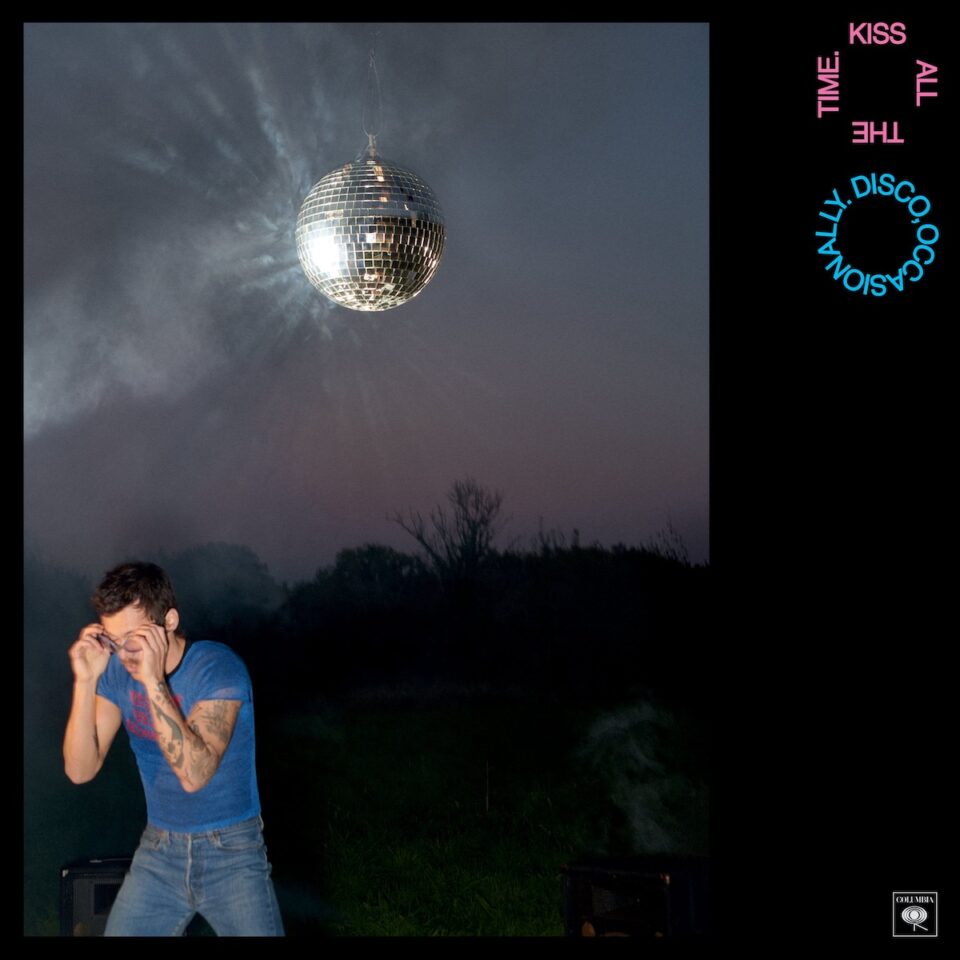As devout readers of this column (or maybe “reader,” singular), you may have noticed that we haven’t posted a new installment in nearly a year. A number of factors went into the Boost hiatus—mostly a lack of time and energy, though the fact that I felt like it had gotten comically formulaic certainly helped—but I wanted to momentarily revive it to spotlight a handful of records I loved from 2023 that also fit the aforementioned formula of the column in hopes of appeasing fans of post-metal, avant-garde hip-hop, nugaze, and freak-folk very specifically, and weirding just about everyone else out.
In addition to leaning into the Boost aesthetic, I couldn’t help noticing that most of the records I wrote about here were heavily collaborative, with references to (if not contributions from) Armand Hammer or Full of Hell materializing in several of the blurbs revolving around those artists’ respective genres. Not to go all trend-piece, but it’s been interesting to watch the formal collaborations of the quarantine era extend into more casual guest features across non-rap (and non-genre, really) releases in a way that once felt like gimmick. I guess that’s one way to alleviate the competitiveness of year-end list placement: share the victory—or the defeat—of list placement with all your fellow weirdos in your orbit.

draag me, lord of the shithouse
I’m not sure it’s particularly helpful to describe draag me as “Spirit of the Beehive only somehow Spirit-of-the-Beehive-ier” (it’s technically the solo project of that group’s Zach Schwartz with bandmate Corey Wichlin in tow for this release), so I think maybe I should add that it often reminds me of Tame Impala if Kevin Parker were a true freak and not just a conventionally attractive pop star tapping into an earnest love for psychedelics. With lord of the shithouse the project leans into that neo-psych influence as much as it does the broader true-freak scene within their native Philadelphia and beyond, courting collaborations with underground glitch-hop figures like Pedazo de Carne Con Ojo and Body Meat, as well as emcee CRASHprez and post-grunge shredder Maneka. Yet many of the record’s highlights come from the creative fusion within the duo itself, such as the bouncy, bizarro-“Broccoli”-era Yachty track “Cut the Check” or the Auto-Tuned piano ballad closer which, given what precedes it, devolves into relatively gentle chaos.
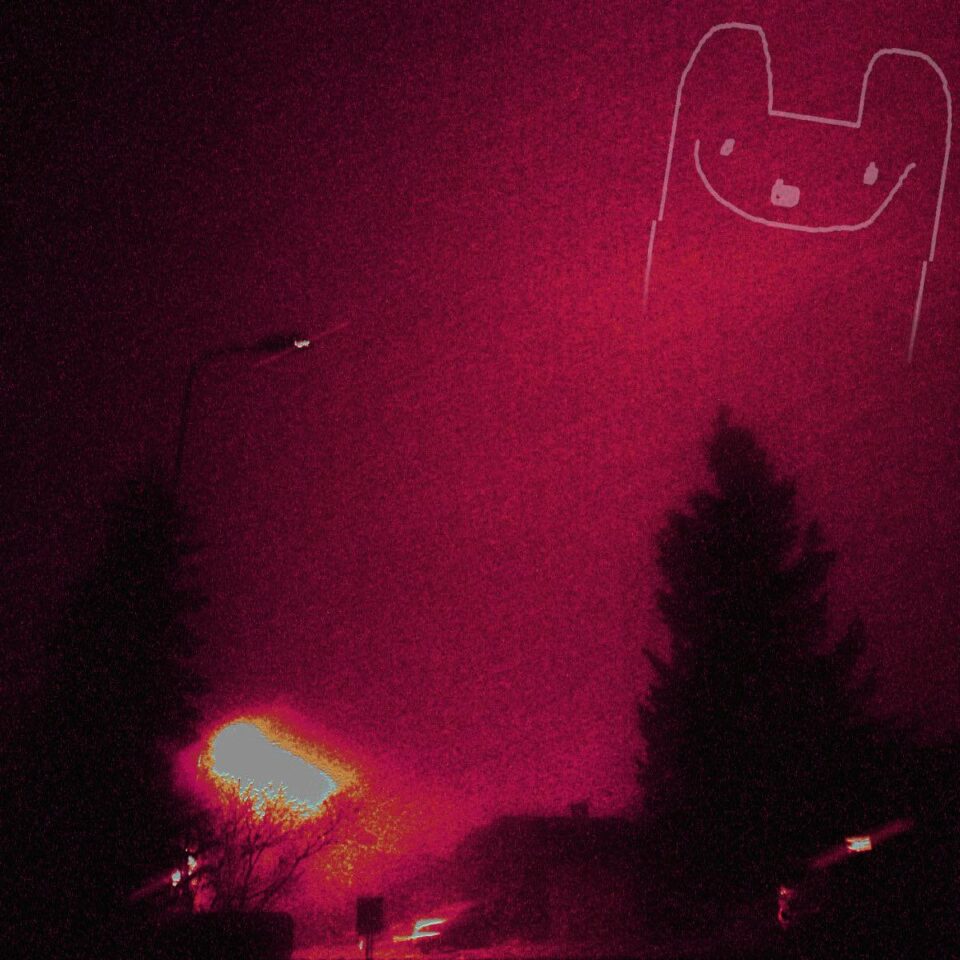
ezra varier, estonian snow
If music in the ’90s was defined by alt rock and the mainstreaming of hip-hop, and music in the ’00s was defined by recycling ideas from the ’80s, and music from the ’10 was defined by recycling ideas from the ’80s and the ’90s, this decade feels like we’ve finally left genre and period aesthetic behind to finally focus on mining the infinite possibilities the internet presents and translating that into music. Often times this makes it sound like the intro scene to The Player when pitching an artist—ezra varier, for example, distinctly comes across like early Teen Suicide doing black metal on estonian snow. And while that description might suggest that either or both factions of the equation are handled in a way that might turn off the audience for the other, as a fan of both myself, the Baltic musician is clearly a devout student of lo-fi slacker punk as much as she is one of post-metal sub-variants. If there’s one moment that could sum up the whole record it’s the clearing at the beginning of “teenage existentialism” where we get a rare audible sound bite of varier’s lyrics as she shrugs the line “There’s no point to these songs anyway” before the heaviest blackgaze riff on the whole record drops and the track slowly unravels into swirling atmospherics.

Fawn Limbs & Nadja, Vestigial Spectra
While the case of whether SOS belonged at the top of 2023 year-end lists was reopened this past month, the alt-metal scene was busy cranking out AOTY contenders that defied list placement either due to their sheer slow-to-digest density (cc: Panopticon) or their release dates landing in the midst of the list prep period (fortunately we were still able to spend plenty of time with that HEALTH LP). Yet two of the most momentous releases came in the form of Full of Hell’s second mammoth full-length collaboration with another surprisingly compatible peer and what feels like an apt twin release which materialized nearly simultaneously: Vestigial Spectra, the debut collaboration between PA mathcore/dark ambient collective Fawn Limbs and Berlin-based drone-metal vets Nadja. Landing somewhere between the former’s heavily narrated pitch-black jazz odyssey Darwin Falls and the sludgy collabs (including Full of Hell’s Dylan Walker, incidentally) that made up the latter’s Labyrinthine, like FoH’s recent work with both Primitive Man and Nothing Vestigial Spectra manages to bring out the most engaging traits of both bands as they experiment with a unified goal of pushing to see just how dark—and heavy—they can take things.

Goyard ibn Said (a.k.a. Ghais Guevara), Goyard Comin’: Exordium (Deluxe)
It’s easy to embrace the narrative that the Goyard Comin’ mixtape is just Ghais Guevara blowing off steam after last year’s deeply political There Will Be No Super-Slave, but I think that not only overlooks the humor of that 2022 LP (just read through the tracklist) but underplays just how well crafted this release is—from its lyrics flipping a distinctly u-mad-bro? sense of humor into something far from insufferable to its beats embracing ’00s hip-hop nostalgia as Guevara’s Lupe-esque flow skates all over beats specifically invoking “Candy Shop,” “Love in This Club,” “Naughty Girl,” and Trap-a-Holics’ watermark (that doesn’t even factor in “Blood on My Grails” and “Good Boof,” which boast two of the hardest beats I’ve heard all year). But yeah, it’s also hysterical, opening as it does with a sample of a guy literally crying and throwing up as if anticipating Ghais’ wrath and sees its tracks interstitched with DJ Drama–esque interjections from the corniest white boy alive (“Goyard said I can party with him if I stand in the corner facing outward”). The tape’s politics almost feel like an afterthought, then, as Guevara casually references the sources of the diamonds and designer clothing he rocks without bringing down the mood.

The HIRS Collective, We’re Still Here
I remember thinking back in March that We’re Still Here would obviously be the record that sees HIRS break through to something like above-ground success rather than just continuing to rule various underground “-core” suffix scenes. But I guess the album’s massive tracklist boasting an insane roster of collaborators—most notable among them being mainstream alt-rock heroes Shirley Manson and Frank Iero, along with post-hardcore lifers Jeremy Bolm, Geoff Rickley, and Anthony Green, to say nothing of prolific noise collaborators Full of Hell, The Body, and Thou—distracted from the album title, which pretty clearly spells out the fact that their status within the music-industry hierarchy is pretty deeply etched so long as they continue to remain this radical in terms of sound, subject matter, and song length (my only complaint with this release is that the songs tend to be over before all the featured guests have time to scroll by on my lockscreen). With their cast of collaborators ranging from sorely missed nu-jungle duos to spoken-word poets, HIRS reminds us that they’re here for nothing more than to dance on the ashes like it’s nothing.

Keep, Happy in Here
2023 was not only the year shoegaze came back in a huge way after building momentum over the course of the nascent decade, but also the year we nearly killed the genre with excessive discourse about it. But even though the subject’s been written-about to death, there are still figures within the movement that deserve to be singled out—especially projects that exist outside the deep isosceles of nugaze’s primary HQs in LA, NYC, and Philly. Richmond, Virginia’s Keep, for example, share the depressive, punky, and more than a bit haunted DNA of Nothing’s East Coast variant of the subgenre’s revival, with their latest LP Happy in Here seeing the band additionally brood through echoes of vintage gothic rock and drain-circling minimalist dream pop. The clincher comes in the record’s final moments when the blankets of fuzz abruptly get removed on “Pull the Curtain Back,” revealing a single acoustic guitar in what sounds like an empty stadium to accompany lyrical nightmare imagery. Turns out behind the curtain of reverb the band was just The Antlers circa Hospice.
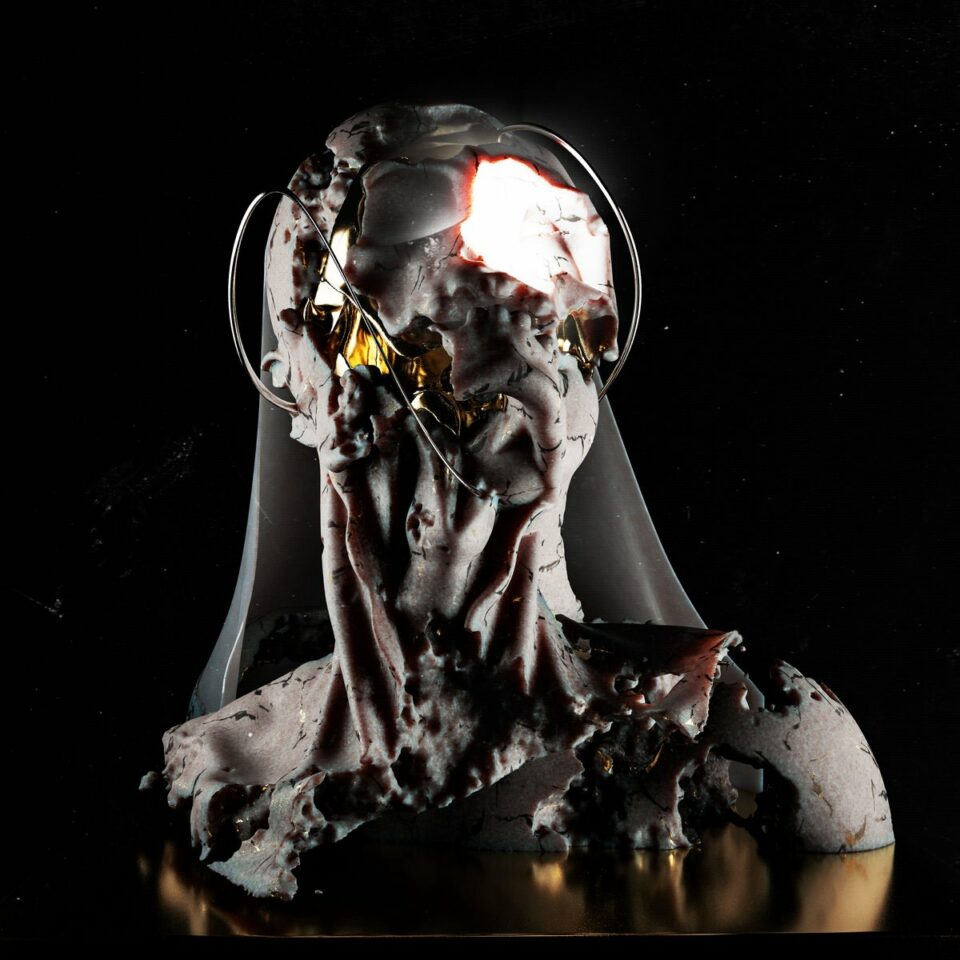
Lana Del Rabies, Strega Beata
It probably wasn’t the most reassuring start to Samantha Angiulo’s resuscitation of the Lana Del Rabies moniker that its namesake announced that her own new album would drop a week after the release of Strega Beata, Del Rabies’ first full-length in five years after briefly moving on from the project. While the churning post-industrial soundscapes just barely skirting the realm of power electronics hardly feel removed from the shadow-world sounds of their predecessors, Strege Beata inhabits a more formalized aesthetic universe which adds a new density to LDR’s music, to say nothing of the individual track lengths sprawling out toward the 10 minute mark in order to further immerse the listener in their nocturnal trances. If Del Rey’s the one who discovered the subterranean passageway under Ocean Blvd., Del Rabies is the one who followed it to its cold, dark endpoint.
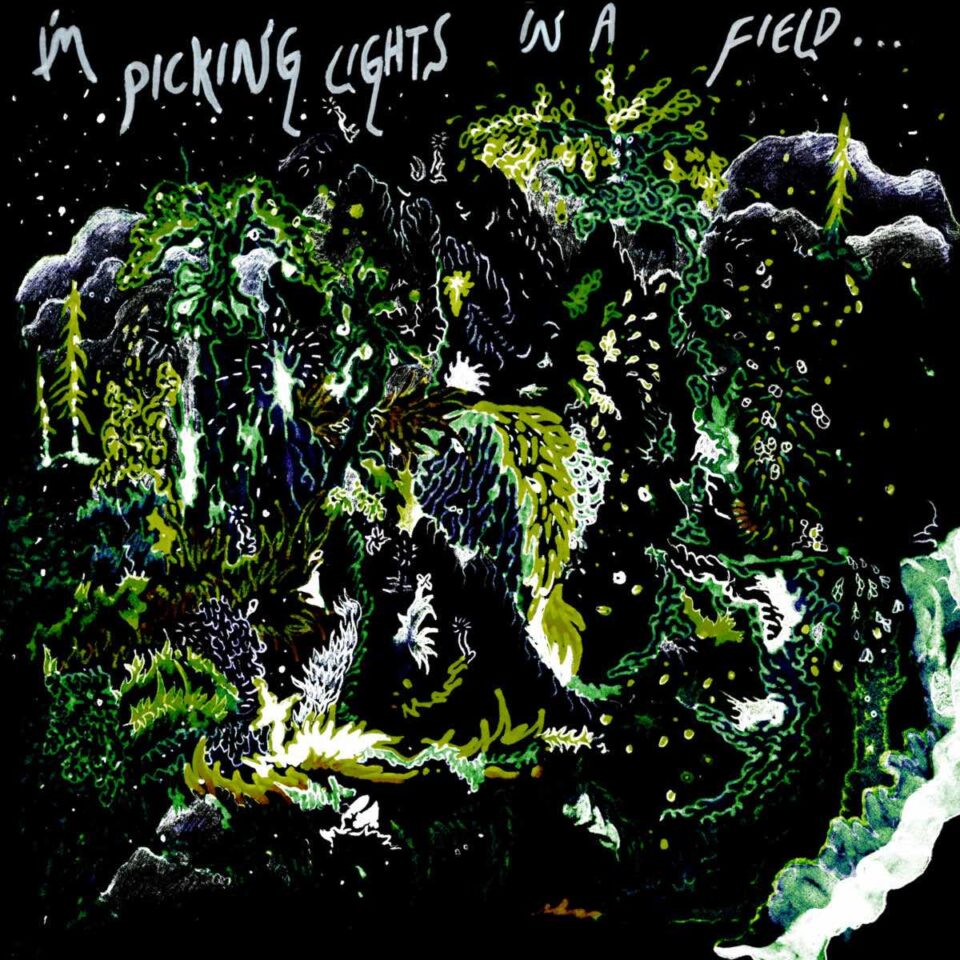
Lanayah, I’m Picking Lights in a Field…
I guess I missed the moment Have a Nice Life went from being a band that barely existed outside the confines of the internet to becoming a massively popular legacy act drawing seemingly sold-out crowds at mainstream venues the world over—but that adds some context for why their label The Flenser seems to be getting a bigger spotlight on its roster every year. It’s only a matter of time, then, that the flanking artists dealing in their patently warped take on metal find exposure, with Lanayah among the most fascinating groups to fit that bill. While I’m Picking Lights in a Field… most closely resembles the raging, unbalanced prog-metal of Flenserites Mamaleek, they sufficiently douse the fire with stretches of near-ambient instrumentals and genuinely beautiful dream-pop numbers. If it isn’t my favorite collection of songs from this year it’s at least my favorite cohesive album statement—nothing quite touches the trapdoor-drop from the decreasingly conventional-shoegaze “Nameless Fluttering” into the stormy and percussively transfixing “Knife, Mirror,” which in turns ebbs back out to the oddly serene headbanger “Peak and Core.”

Lauren Early, Don’t Take My Dream Away
When Lauren Early first landed on our radar with her Patience EP in 2019, the undeniable shades of Hand Habits and Beach House across its tracklist—to say nothing of osmosing peers like Girlpool and Surf Curse—were certainly a draw, if also a sign that these fairly disparate reference points made for an uneven listen. Her debut full-length not only alleviates that concern but puts its creator’s self-deprecating wit—easily overlooked on Patience, perhaps “Stupid Now” excluded—front and center. “Am I an incel, am I hysteric? / I don’t care, I love you, I can’t bear it,” Early intones to open the album before later on the track questioning whether she’s enduring “a romance or a horror” with a nearly comic deadpan. From there each track roughly recreates the formula set by “Good Girl Bad Boy”—equal parts lovestruck and goofy couplets seemingly poking fun at the state of perplexity that often precedes a relationship, accompanied by various strains of grunge and dream-pop (when not downright Martschian) electric guitar and subtle live and programmed percussion—with the occasional detour into earnest piano ballad territory. Can’t explain it, but when she sings “You’re a lady, I’m a boy / You’re a psychic, I’m unemployed”...I felt that.

Mad Honey, Satellite Aphrodite
When I think about the descriptor “beautiful” in reference to Deathwish Inc.’s roster largely built upon the legacy of the metalcore band the label’s cofounder belongs to, generally what comes to mind is the sense of harmony with the universe found deep within the chaotic black-metal thrashing of Sunbather which, like a Magic Eye image, is visible only to patiently trained senses. Which makes OKC dream-pop collective Mad Honey’s debut a bit of an unexpected listen (to say nothing of the band name’s invocation of another noisy group that starts with “M” and ends with “-dhoney”) as its acoustic guitar intro rarely evolves into anything more abrasive than the dense, shoegaze-y network of guitars wrapping around Tiff Sutcliffe’s soft vocals. Yet the quiet moments are just as common and just as powerful—the sexy, gecs-y slow jam “r u feeling it?” speaks to the band’s range as experimentalists, while the haunting, late-album baroque-acoustic “鎌倉市 (Kamakura)” proves to be the track that lingers longest after the album ends.
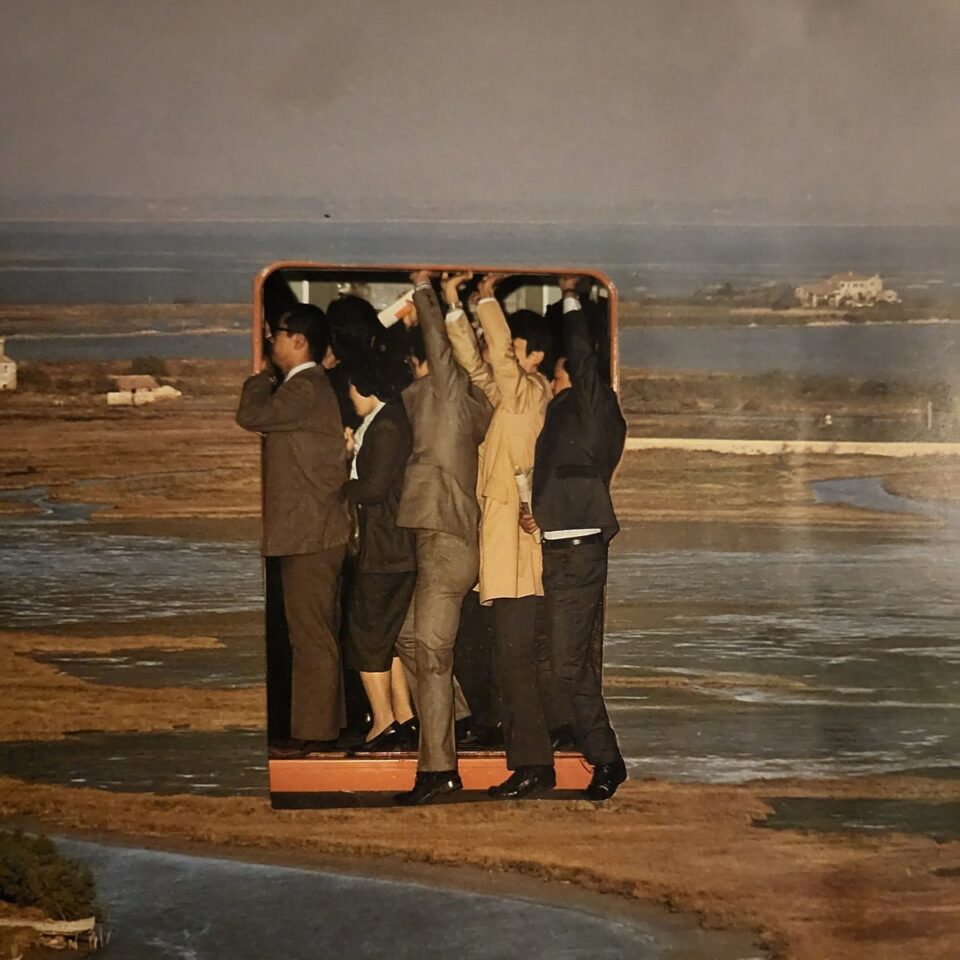
Mt. Worry, A Mountain of Fucking Worry
As an outsider to emo, my impression is that John Galm falls within the weirdly specific category of “Former Vocalists Of Hugely Popular Pop-Punk Bands Who Disbanded The Group To Work On Weird Solo Material That Sounds Nothing Like Their Famous Band And Whose Fans Are Very Opinionated About That Fact” alongside Adam McIlwee, Ned Russin, and Zach Schwartz. Yet rather than sticking to one lane that may or may not involve sprinting around stage alone over a pre-recorded instrumental, Galm seems to be reinventing himself every couple of years with the single throughline of each project being the zenith of emotional expressiveness (see: the unfiltered-alt-account-set-to-private manic grunge of Slow Warm Death, or the timid slowcore of Bad Heaven Ltd.). While Mt. Worry doesn’t ever quite land on a single aesthetic across their debut release, the throughline, as the title suggests, is fucking worry, which culminates on the skull-pounding final track which manages to out-shoegaze the entire burgeoning local Philly shoegaze scene.
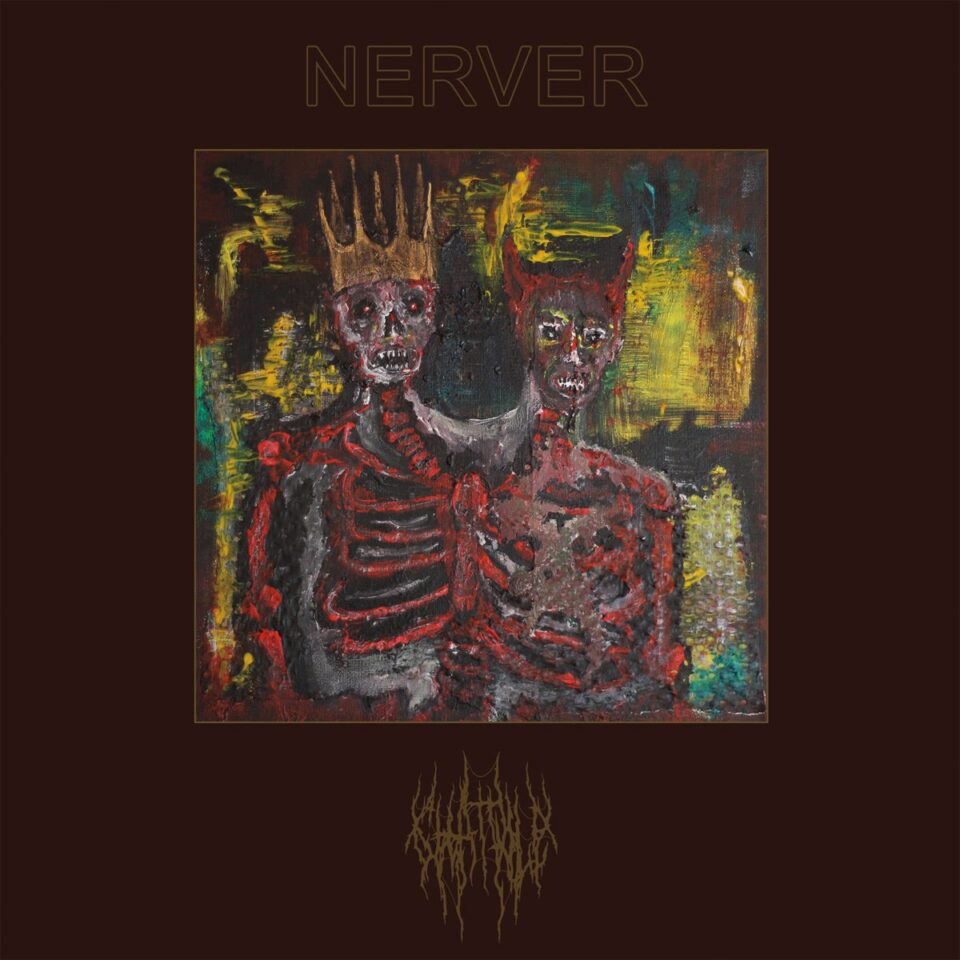
Nerver/Chat Pile, Brothers in Christ
I briefly worried that Chat Pile’s ubiquity on year-end lists at the close of 2022 was some sort of fluke, that God’s Country was nothing but a hive-minded mass flirtation with metal among previously sludge-averse listeners that would dry up within a few months. The fact that they’ve been selling out international shows (and opening for metal royalty) basically non-stop since then proves otherwise, though I think this worry was adequately allayed in April when they dropped this split alongside Midwestern noise-rock brethren Nerver. Perfectly balanced between the latter’s muddier take on early Cursive records (“Kicks in the Sky”) and an even more frantic introduction to bog-dwelling post-hardcore, the immediately identifiable vocals of Raygun Busch come ambling out of a cavernous instrumental and into center stage (a lot like Busch’s actual stage presence) on “King.” Ultimately the EP served as the perfect teaser for the bands’ joint tour—an event so powerful that I managed to power through all three sets (meth., who deserve their own spotlight, opened) 30 hours after a flu shot/COVID booster cocktail.
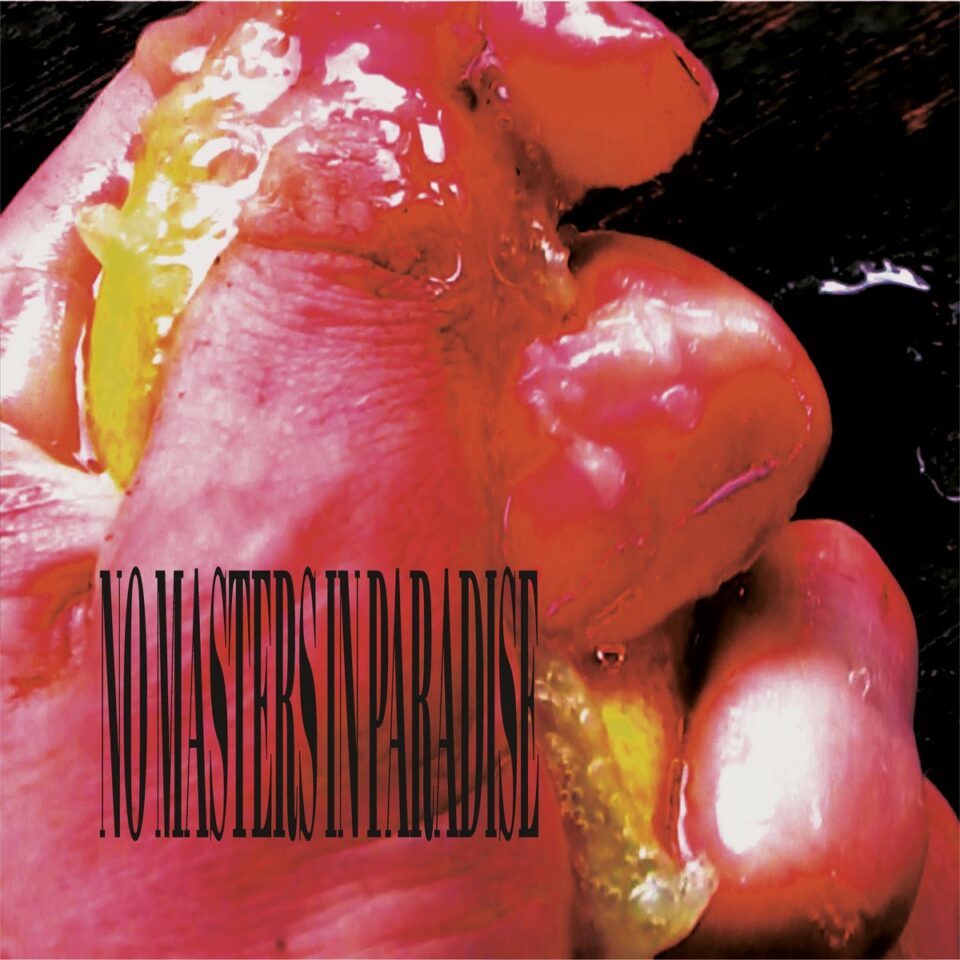
Paul Bergmann, No Masters in Paradise
Paul Bergmann has long self-identified—and rightly so—as being a songwriter among the King Dude/Cash-doing-“Hurt” lineage of gothic-tinged folk music. Which makes his latest record an interesting testament to how that focus has shifted over the past decade without him seeming to notice much: His ominous baritone feels less like an aesthetic choice and more like the natural accompaniment for the subtly trippy pub rock refitted for a high-casualty saloon that even veers into Nick Cave sanctioned post-punk territory on occasion (as the oddly evil-vaporwave album cover seems to confirm, No Masters in Paradise is a record that scoffs at the concept of genre). Although he shared with us earlier this year when the record was announced that its centerpiece and lead single “Don’t Piss in My Hand” was written almost incidentally, his venomous recitation of Frank Booth–like lyrics such as “Who’s out fuckin’ the wind?” reconfigures the project in its current state as spite-folk before cooling off in the LP’s second act.

Prewn, Through the Window
After Weyes Blood ushered in a recent fixation with Laurel Canyon folk, it only makes sense that songwriters should return next to the similarly ur-textual—yet admittedly inimitable—canon that is Tom Waits’ mid-’80s Island Records run. Prewn’s debut album hardly recreates the unexpected sounds of Waits’ voice and the equally unexpected sounds happening underneath them, but Through the Window presents plenty of its own visceral and surreal images through Izzy Hagerup’s quavering vocals and psychedelicized freak-folky instrumentals fueled by convoluted yet always-heavy emotions. For every indiscernible lo-fi digression (e.g. the back half of the Mangum-ese “Woman”), though, there’s a curious flirtation with conventional pop-folk—that is, until you make out the lyrics evidently invoking our current era of billionaires drinking their own kids’ blood in an attempt to reclaim their youth.

Regal Cheer, Cans
In the spirit of the 10-song, 17-minute Cans, I’m gonna keep this pitch quick and to-the-point: Regal Cheer are the most ear-wormily anthemic elements of a band like Joyce Manor or Prince Daddy mixed with the fast-and-loose attitude and goofy demeanor of Jeff Rosenstock (occasionally sounding like British-accented dead ringers for the vocalist) without the forays into ska and blast beats. Across the record, it’s easy to forget they’re merely a two-piece, as they keep the pace quick and the noise level high up until the final shouts of layered vocals. For a genre as resolutely self-serious as emo, this micro-LP feels like a breath of fresh air even when the regret-filled lyrics cut deep—in the end it’s the near-comic enunciation of lines like “I should say something, what the heck?,” paired with instrumentals marked by total reckless abandon, that stick with the listener.

Shapednoise, Absurd Matter
I predict that much in the same way Twin Peaks: The Return washed over me in 2017 and—after dazedly repeating the show’s final line to myself on occasion in a disassociated trance matched only by the one instigated by the finale of the series’ original run—now increasingly feels like a sort of celebrity-packed nightmare mass hallucination, this LP from Berlin-based producer Shapednoise will feel too weird to have been a thing half a decade from now. In fact, Absurd Matter is introduced with a feature from David Lynch’s sound mixer on The Return, Dean Hurley, before transitioning into the deeply subterranean deconstructed club beats over which a small cast of familiar voices rap as the instrumental shifts shape to match the ominous atmospheres Armand Hammer tends to conjure (here’s hoping there’s more circular saws in their future), or the industrialist sounds Moor Mother traversed on her collaborations with Justin Broadrick and Kevin Martin. As for the Zelooperz verse, I’ve never heard him touch anything that blown-out—it’s like the fractured, bass-heavy output of a totaled Lambo.

Sirius Blvck, Alter Ego. EP
Sirius is basically a Sig Boost all-star at this point—but I can’t overstate how deserving the Indy rapper is of the attention his DIY-minded peer billy woods is receiving a decade into his career, as both emcees seem to continually be burrowing further into their own nooks they’re only getting more comfortable within. Working best in short spurts of punky word collages, Alter Ego is a step in the direction of more diverse instrumentals (minimal-dirgey opener “Dearly Beloved…” is just as receptive of Sirius’ dizzying verses as the borderline-jazz-rap “Manifesto”) and hungrier deliveries than 2021’s Cinephile, which in turn proved a fairly jarring transition from his prior smoked-up collaborations with Oreo Jones (81355 included) as his roots in Naptown continue to feel more like a misnomer.
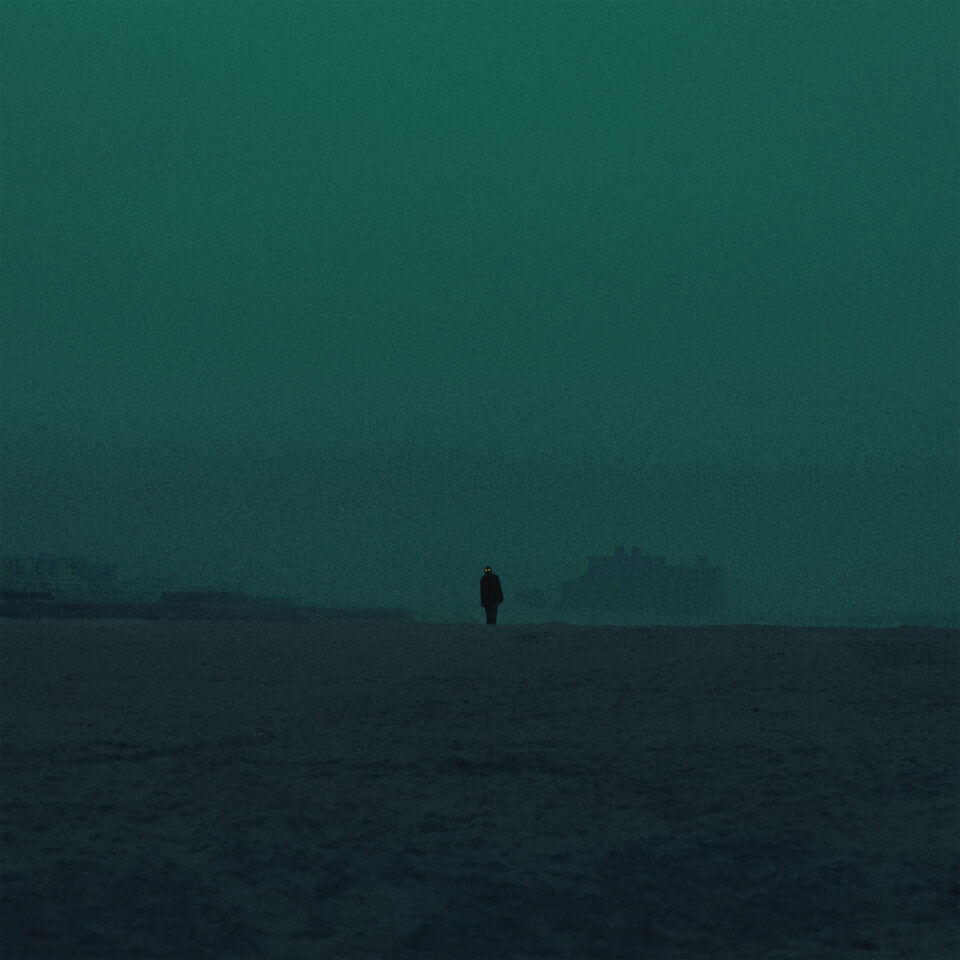
Skech185 & Jeff Markey, He Left Nothing for the Swim Back
In a year that saw label head billy woods crack the top five (at least once) in nearly every indie-focused music publication’s year-end “Best Albums” list after consistently churning out “Best Album”–worthy records every year or so (again, at least once) for a decade, it’s exciting to watch the void in the underground he left behind quickly get filled with equally talented voices. Following a recent slew of guest spots (kicking off in 2018 with woods’ Armand Hammer project), Skech185 returned over a decade after his 2011 debut with an album that occupies the same Def Jux–era East Coast hip-hop roots while Jeff Markey’s production leans further into the tech-noir stylings on Anticon (Skech’s verbose, Dan Flashes–patterned, and—barring occasional mentions of rent checks and drafty apartments or sociopolitical reference to his hometown of Chicago—science-fictional flow even recalls that of Doseone). Rounded out by additional Backwoodz in-house figures (mixing and mastering from Steel Tip Dove and Willie Green, respectively, as well as verses from woods and ShrapKnel’s PremRock), He Left Nothing for the Swim Back is as much a singular statement from the gruff emcee as it is one from the label discography it fits neatly within.
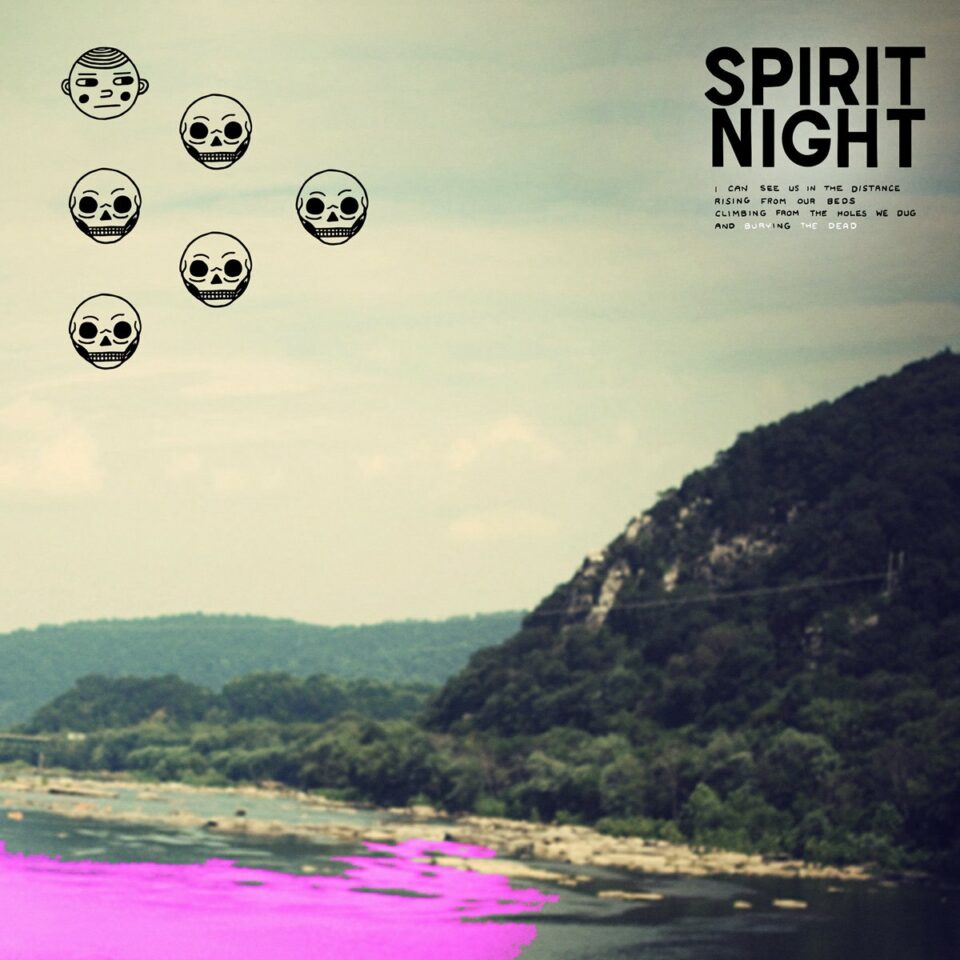
Spirit Night, Bury the Dead
I fear that it’s both highly unprofessional and a disservice to the artist to open this blurb by noting that Spirit Night’s Dylan Balliett has made me laugh out loud practically daily since I started following the on-full-blast faucet of shitposts that is nominally his band’s Twitter account—yet it does feel like a weirdly proper entry point here, considering he’s equally affecting as a lyricist. In lieu of anti-Elon sentiment and self-deprecating invocations of diarrheac episodes, Bury the Dead addresses personal themes of longing, nostalgia, and grief with the precision of someone who’s been seriously contemplating them for at least as long as the gap since his previous album from 2015. While lead single “Country Roads” serves the dual purpose of establishing setting through indirect reference to John Denver and displaying his most undeniably hooky riff, the rest of the LP proves an equally complex exploration of genre influences ranging from Weezer’s least groan-inducing material, to equally anachronistic jangle- and power-pop, to Spreengsteenian Midwest-emo. To say nothing of the balladic centerpiece “Different Bodies,” which has been my “Desperado” since it was released a few years back as a B-side—a deeply evocative vignette perfectly adapted to fit a pop song structure like a glove that accentuates the BB still embedded in your hand.

Washer, Improved Means to Deteriorated Ends
This may be a weird thing to say as the editor of a publication that’s helped debut the lead single from half the releases the label has put out over the past five years, but it can be easy to take Exploding in Sound Records for granted. While they’ve been on a hot streak of putting out fairly diverse releases (see: the afore-listed Prewn), there’s a certain vein of core artists that have come to define their sound—of course I’m gonna listen to a new Washer album, and of course it’s gonna sound like this. But after a few months of satisfied listen-throughs, Improved Means to Deteriorated Ends began to stand out to me among the label’s indie-grunge discography with its unpredictably lurching tempos (and resulting breakdowns), cartoonishly vocalized emotional peaks, and, surprisingly cutting lyrical refrains. “All the wrong people love themselves,” an upbeat Mike Quigley sings on a track titled “Death of an Empire” before diagnosing himself as “his own answer to hell” over equally flagellating guitar a moment later. It’s nothing those of us with Twitter—a.k.a. X, a.k.a. the original “cheap therapy”—accounts haven’t seen before: an occasionally concerning slacker demeanor translated to artistic expression achieving a surprisingly long shelf life.




